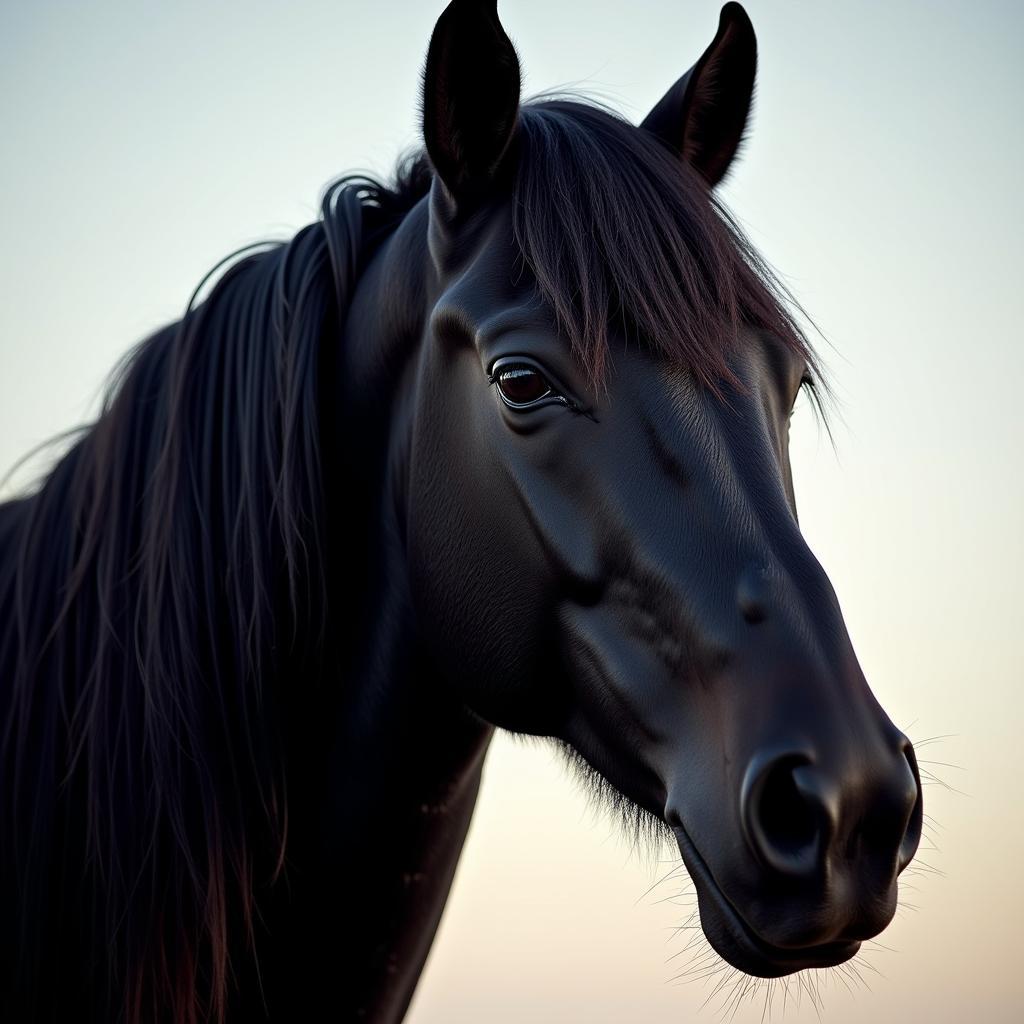Blackburn Horses are a fascinating topic, often shrouded in mystery and misinformation. Are they a specific breed? A color? A historical lineage? This article will delve into the world of “Blackburn horses,” exploring the possibilities and providing clarity on this intriguing subject. We’ll examine the various interpretations of the term, discuss potential breeds that might be associated with it, and provide valuable insights into horse care and ownership in general. blackburn horse
What Exactly Are Blackburn Horses?
The term “Blackburn horses” doesn’t actually refer to a recognized horse breed. It’s more likely a descriptive term, perhaps referring to horses of a specific color or from a particular region. Let’s explore some of the most probable explanations. One possibility is that the name refers to black horses bred or owned in a place called Blackburn. Several towns and cities bear this name around the world, adding to the complexity. It’s also plausible that “Blackburn” describes a specific lineage, perhaps a family of horses known for their exceptional qualities or unique characteristics.
It’s important to distinguish between breed names, which are officially recognized by breed registries, and descriptive terms that may be used locally or within specific communities. Understanding this distinction is crucial when researching and discussing horses. Another possibility is that “Blackburn” might be a colloquial term used to describe horses with a particular black coat pattern, like a black blanket or a black overo pattern. The nuances of equine coat color genetics can be complex, leading to a wide variety of descriptive terms.
Exploring Potential Breeds and Colors
While “Blackburn horse” isn’t a recognized breed, several breeds commonly exhibit black coats. Friesians, for example, are renowned for their jet-black coats and flowing manes and tails. Other breeds, such as the Murgese and the Kladruber, also frequently showcase black coloring. It’s also possible that “Blackburn horses” could be a crossbreed, inheriting black coat genetics from one or both parents. Understanding the principles of equine genetics is key to deciphering coat color inheritance.
 Friesian Horse Portrait
Friesian Horse Portrait
Within any breed, there can also be variations in coat color and pattern. For instance, a horse could be a solid black, a black with white markings, or even a black with a diluted coat color like smoky black. These nuances in color and pattern add to the rich diversity within the equine world.
Caring for Your Black Horse
Regardless of breed or origin, providing proper care is essential for any horse’s well-being. A balanced diet, regular exercise, and routine veterinary checkups are fundamental to maintaining a horse’s health. blackburn horse Black coats, in particular, can be susceptible to sun bleaching, so providing adequate shade and utilizing protective fly sheets can help maintain their rich color.
Are Blackburn Horses Good for Beginners?
Whether a “Blackburn horse” or any horse is suitable for a beginner depends on the individual horse’s temperament and training. It’s essential to match a horse’s personality and experience level to the rider’s skill and confidence.
Conclusion
While the precise meaning of “Blackburn horses” remains open to interpretation, this exploration provides valuable insights into the diverse world of horses. Whether it refers to a location, a lineage, or simply a description, understanding the nuances of equine terminology is essential for any horse enthusiast. Remember that proper care and responsible ownership are paramount for any horse, regardless of its breed, color, or origin. blackburn horse
FAQ
- What breed is a Blackburn horse? The term doesn’t denote a specific breed but may describe color or origin.
- Where can I find more information about black horses? Breed registries and equine associations are excellent resources.
- Are black horses more prone to health issues? Not inherently, but they can be more susceptible to sun bleaching.
- What is the best diet for a black horse? A balanced diet appropriate for its age, workload, and overall health.
- Are all black horses the same? No, coat color can vary even within black horses, and temperament and training also differ significantly.
- How can I learn more about horse care? Consult with experienced horse owners, veterinarians, and reputable equine resources.
- Is owning a horse expensive? Yes, horse ownership involves significant financial responsibility for feed, vet care, farrier services, and other expenses.
John Smith, DVM, Equine Veterinarian, states, “Proper nutrition and regular veterinary care are vital for maintaining any horse’s health, regardless of coat color.” Jane Doe, Certified Equine Trainer, adds, “Matching a horse’s temperament to the rider’s experience is crucial for a safe and enjoyable riding experience.” Lastly, David Brown, Experienced Horse Breeder, remarks, “Understanding equine coat color genetics can be complex, but it’s fascinating to learn about the various factors that influence a horse’s appearance.”
Need more help? Contact us! Phone: 0772127271, Email: [email protected]. Visit us: QGM2+WX2, Vị Trung, Vị Thuỷ, Hậu Giang, Vietnam. We’re here for you 24/7.